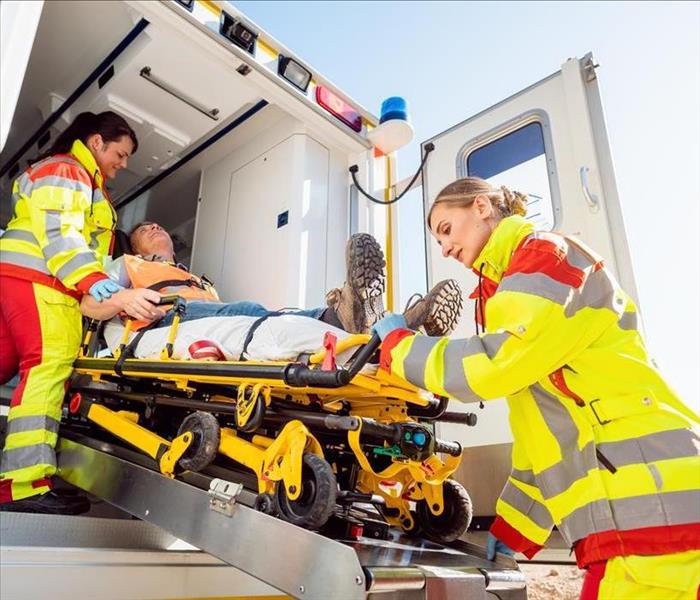As a First Responder, How Can I Stay Safe During a Flood?
5/28/2021 (Permalink)
As a first responder in Colorado Springs, CO, you're working on the front lines during all types of disasters. Stress comes with the territory. A major flood can be one of the anxiety-provoking situations. Not only are you focused on helping others, but you must focus on protecting yourself.
Follow these tips for completing a safe flood response:
3 Tips For Completing a Safe Flood Response
1. Regularly Wash Your Hands
When dealing with floodwaters, you never know what class of water you'll encounter, but it will present hazards. You'll likely come into contact with waterborne illness and contaminated materials. Make sure to wash your hands well with soap and water or hand sanitizer before all work breaks and meals and at the end of your shift.
2. Wear Personal Protective Equipment
Wearing PPE is vital whenever you're serving as a first responder. Working in a flooded area requires some specific types of protection for various hazards similar to those of flood remediation professionals. Chemical-resistant PPE is preferable, especially if you suspect the presence of chemical hazards. The essential protective gear includes safety goggles, a respirator mask, disposable latex gloves, coveralls and waterproof boots. Always discard or launder PPE before taking them to a personal area like your vehicle or home.
3. Know When To Get Medical Treatment
Wearing the proper PPE should protect you well, but there are always risks when working in disaster areas. If you have a cut or other broken skin issues that have come into contact with contaminants, you should make sure you're up to date on your immunizations. If you haven't had your Tetanus vaccination within the last five years, you must get another. Also, consider getting a Hepatitis A vaccine if you haven't had one recently.
There are signs of contamination-related health issues for which a first responder should immediately seek medical care. Some of these issues include fever, dizziness, headache, muscle aches, nausea, diarrhea, and abdominal cramps. Make sure you're familiar with all safety precautions and adequately prepare yourself. After all, without your well-being, it's impossible to assist others.



 24/7 Emergency Service
24/7 Emergency Service
